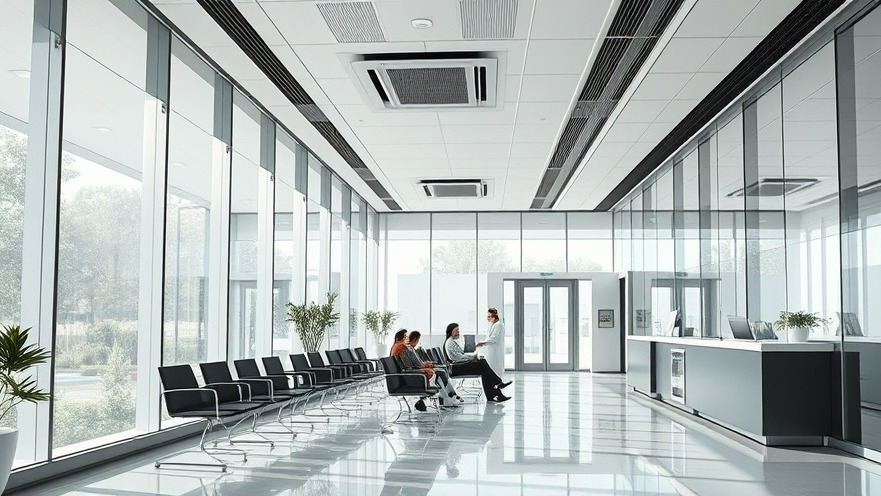
Understanding the Importance of Air Quality in Healthcare
As the field of healthcare increasingly recognizes the connection between environmental factors and patient health, air quality has emerged as a focal point for improving patient outcomes. In the evolving landscape of concierge medicine, where patient comfort and wellness are paramount, the implementation of automated ventilation systems is not just a trend—it's a necessity. These systems facilitate a continuous flow of fresh air, reducing allergens and pollutants that can exacerbate health issues, particularly for patients with respiratory conditions.
The Role of Automated Ventilation in Supporting Wellness
Automated ventilation stands at the intersection of technology and health. By monitoring humidity, temperature, and CO2 levels, these systems adjust airflow dynamically, ensuring optimal indoor air quality. For concierge medical practices, this means happier patients who experience fewer symptoms related to poor air quality, thereby enhancing their overall wellness journey.
The Future of Patient-Centric Architecture
With the healthcare industry's ongoing evolution, integrating automated ventilation into new and existing facilities paves the way for a patient-centric approach to design. Facilities that prioritize wellness by ensuring adequate ventilation signal to patients that their health is taken seriously. Features like weather-responsive window openers enable natural airflow, which can also reduce dependence on air conditioning systems—offering an eco-friendly solution that appeals to the environmentally conscious patient.
Integrating Convenience and Accessibility
Modern automated ventilation systems promise not only improved air quality but also ease of use. This becomes crucial in healthcare settings where access for all patients is essential. Automated systems can be designed to operate quietly and unobtrusively—allowing patients with mobility issues to adjust ventilation settings without physical strain. Such thoughtful design enhances inclusivity within healthcare environments, transforming them into welcoming spaces.
Measuring the Impact on Health Outcomes
The real-time adjustments provided by automated ventilation can significantly impact health outcomes by promoting cognitive function and reducing airborne illnesses. Instances of respiratory infections can decrease as fresh air circulates in environments where people gather. For concierge practices, the enhancement of patient health not only nurtures a loyal clientele but also presents opportunities for those practices to position themselves as leaders in wellness-oriented healthcare.
Conclusion: Transforming the Patient Experience with Smart Solutions
Incorporating automated ventilation into concierge medical practices isn’t merely an upgrade; it’s a commitment to improving patients' health and enhancing their overall experience. As healthcare regulatory frameworks become more stringent, compliance through these smart ventilation systems can translate to operational efficiencies that ultimately save costs and improve practice sustainability. As an owner of a concierge medical practice, investing in automated ventilation solutions is a strategic step toward ensuring that your patients enjoy optimal wellness while you secure your position as the top local provider.
 Add Row
Add Row  Add
Add 




Write A Comment